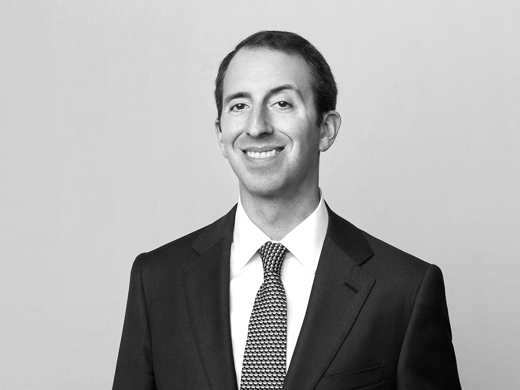5 minutes with... Evan Meyerson




Burford is in the business of assessing and valuing litigation assets. Prior litigation experience is certainly one key factor that impacts our business decisions. The years I spent in law school, then as a US district court law clerk, and as a practicing general commercial litigator at Sullivan & Cromwell and Paul, Weiss very much form the building blocks of my investment screen, from how to assess the merits of a given litigation to having an instinct for when—and for how much—meritorious disputes might resolve before trial, and so on.
Yet neither law school nor practice typically teaches litigators how to creatively structure, price and negotiate deals. In addition, litigators advocating for their clients tend to be less data-driven in their work than we are at Burford. As a result, much of my approach to underwriting—and to leading the US commercial team, for that matter—has been shaped by my six-plus years at Burford, working on the largest and most bespoke financing deals in our space and leveraging our proprietary data set to inform our decisions to deploy capital.
Aviva Will often says that Burford’s most significant competition does not come from other capital providers, but rather comes from a counterparty’s decision not to finance its legal assets at all. And it’s true! Building relationships with law firms and companies that have not previously used our product, and pushing them further along the education curve, is key to our growth strategy.
On one hand, the pitch can sound easy. For companies, Burford can help transform in-house legal departments from cost centers into profit centers. For law firms, Burford can help expand the pie for revenue generation by allowing firms to offer contingency arrangements to institutional clients for affirmative litigation instead of losing that business to others, while at least partially financing those firms to mitigate their contingency risk. In other words, why wouldn’t you want to make more money?
On the other hand, historically, the legal industry is one of the most financially conservative markets there is. Thus, the onus is on Burford to show law firms and companies that our product is simply another version of already-familiar corporate finance. We provide corporate finance for legal claims, no different from corporate finance for cash flows, real estate, etc. Legal claims are riskier than most other collateral for corporate finance products, and our pricing reflects that elevated risk, but the solution is the same one you’ve known for decades. You have something of value that you cannot convert into operational cash; we can do that for you.
Relationships with first-time users take time to build, and we are focused on establishing ourselves as the trusted financing partner for the legal industry. However, the most telling feature of our business model is the high frequency of repeat business we do once we close that first deal with a counterparty who has never used legal finance before.
In large part due to Burford’s efforts building relationships with companies that had not previously considered using legal finance, a majority of Burford’s business now comes from working with companies directly—71% of our new business last year came from companies. Opt-outs are a part of that growth trend.
As large corporate entities — namely Fortune 500 businesses — have warmed to the idea of using meritorious legal claims to generate profits through affirmative litigation(as opposed to just spending money as defendants), the idea of opting out of a class has become more attractive, and our recent research dives deeper into that topic. A company will almost always stand to generate more value as an opt-out than a class member, and Burford can help mitigate any risk the company may perceive when electing to opt out.
Burford helps mitigate the risk either by partially monetizing that company’s claim in advance—providing cash today that a company otherwise would not have seen for years to come—or by covering some or all of the legal costs to pursue that claim. Burford is also partnering with leading global law firms to build books of opt-out clients, with those firms using financing to mitigate their own risk when offering clients contingency arrangements. This benefits both the firm, which can expand its practice, and the company, which can pursue high-value, meritorious claims without any hit to its bottom line.